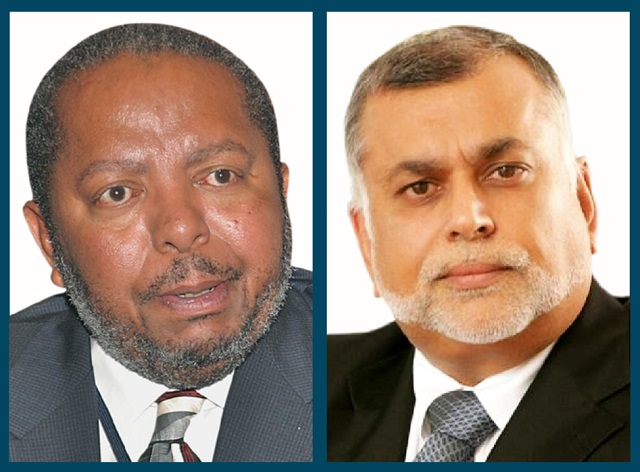
But commercial lawyers argue that the central bank is simply cleaning its face and that the law is not on its side
Kampala, Uganda | JULIUS BUSINGE | The legal battle between Bank of Uganda and Sudhir Ruparellia over the defunct Crane Bank Limited is intensifying. They are headed to the Supreme Court going by pronouncements made by Bank of Uganda.
The two parties and their legal teams have issued statements indicating they both have a good case.
This, however, is raising suspicions amongst those following this case as to why the Bank of Uganda is insisting on a case that it has lost twice – at the Commercial Court and Court of Appeal.
The Court of Appeal on June 23, 2020 dismissed an appeal and upheld the decision of the High Court in a suit filed by Bank of Uganda, on behalf of Crane Bank Ltd (in receivership) against Sudhir Ruparelia and Meera Investments Limited.
In dismissing the appeal, the Court of Appeal held that the trial judge was satisfied that the preliminary points of law which the respondents raised were based on the presumption that the facts in the plaint were true and that the points of law, if upheld, were sufficient to conclude the case.
Court of Appeal Justices, Alphonse Owiny Dollo; Cheborion Barishaki and Stephen Musota agreed with an earlier ruling by Commercial Court Judge Justice David K. Wangutusi’s August 26th 2019 that a bank in receivership (Crane Bank Limited in this case), under the Financial Institutions Act (2004) cannot sue or be sued and therefore Crane Bank (in receivership) cannot and should not have sued businessman Sudhir Ruparelia and his company Meera Investments Limited.
The other big contention was on ownership of land on which Crane Bank branches sit countrywide.
But the Justices, while delivering their ruling , Civil Appeal 252 of 2019 at the Court of Appeal, the trio also ruled that Crane Bank (in receivership) being a foreign [partly] owned bank, cannot own freehold land in Uganda and therefore has no legal basis to sue Sudhir for land it cannot own.
“The appeal consequently fails. It is thus dismissed with costs here and the court below,” ruled the justices. The costs would be met by Bank of Uganda.
As Sudhir lawyers – Kampala Associated Advocates – were starting to compile the costs and related damages, on June 30, Bank of Uganda (BoU) issued a statement informing the public of its decision to appeal the Court of Appeal’s dismissal of the case to the Supreme Court. KAA described the statement as one with ‘inaccuracies and false statements’.
The statement, signed by Emmanuel T. Mutebile, the governor, cites powers under sections 87(3), 88(1) (a) &(b) of the Financial Institutions Act, 2004, that the BoU used to place Crane Bank Ltd (in Receivership) [“Crane Bank”] under Statutory Management on October 20, 2016.
Mutebile and his legal team maintains that receivership does not take away the corporate personality of a company which includes the right to trace and recover assets and the right to sue for those assets.
Mutebile further justifies his move to take over Crane Bank, saying the decision was necessary upon discovering that Crane Bank had significant and increasing liquidity problems that could not be resolved without the Central Bank’s intervention given that Crane Bank had failed to obtain credit from anywhere else.
An inventory by external auditors, Mutebile said, found that the assets of Crane Bank were significantly less than its liabilities. In order to protect the financial system and prevent loss to the depositors of Crane Bank, Bank of Uganda had to spend public funds to pay Crane Bank’s depositors.
In response, KAA said in a July 02 statement that this is a false claim and is not part of the case that Bank of Uganda filed. They said it is an allegation that is designed to sway public opinion and has nothing to do with the case. They add that independent inquiries conducted by both the Auditor General and the Parliament of Uganda (COSASE Committee) have all reported that there was no evidence to support Bank of Uganda’s claims that tax payers’ money was allegedly spent on paying depositors.
“Money went missing from Bank of Uganda and remains unaccounted for,” KAA lawyers say. They add that ever since Bank of Uganda took over Crane Bank, it has not published any audited accounts of the Crane Bank.
“There are no audited accounts for the period of Statutory Management or Receivership. This means that there are no documents of Crane Bank Limited that prove the Bank of Uganda’s allegation that it injected taxpayer’s money into Crane Bank,” the lawyers added.
Meanwhile, KAA says that Bank of Uganda’s auditors stated that the money Crane Bank Limited needed to survive was only Shs130billion as opposed to Bank of Uganda which alleges that it injected Shs497billion into Crane Bank.
 The Independent Uganda: You get the Truth we Pay the Price
The Independent Uganda: You get the Truth we Pay the Price



